‘Unreliability is creeping up’: What it’s like travelling on some of the worst rail routes for delays and cancellations
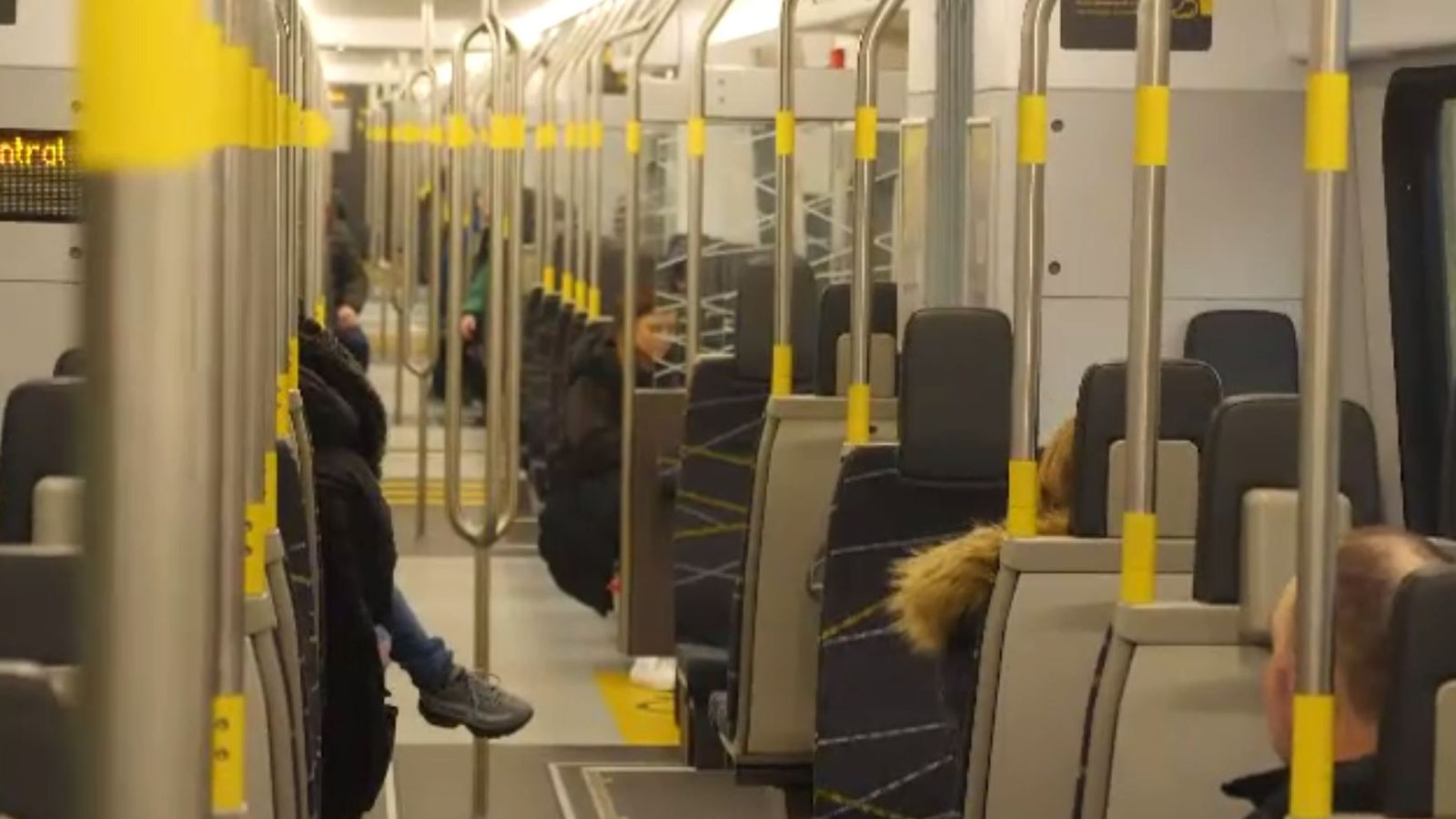
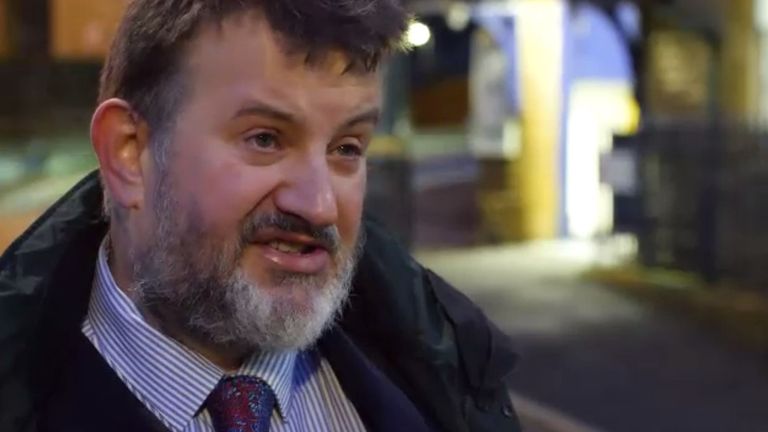
“The last thing I do before going to sleep at night is check the trains to see whether they’re running on time and then the first thing I do in the morning, before I reach for a cup of tea, is pick my phone up and check again. And then you can still get to the station and find it’s cancelled or delayed.”
Welcome to the world of Andrew Holstead, and the thousands of others like him who rely on Britain’s creaking railway network.
I joined Mr Holstead on his morning commute into Manchester Piccadilly aboard a TransPennine Express service.
It was the first leg of my journey across the country to find out what it’s like for customers on some of the worst routes for delays and cancellations.
Things got so bad on TransPennine earlier this year that the government took over running their services, not that Mr Holstead and his fellow passengers have noticed much improvement.
This morning’s train is late.
As we stand, squeezed in the train’s corridor because all the seats are taken, Mr Holstead pulls out his phone and shows me a spreadsheet of delays and cancellations.
“It’s getting worse at the moment, the unreliability is creeping up again,” he said.
Train strikes: Full list of dates in December 2023 and rail lines affected
Advertisement
When we reach Manchester, I say goodbye to Mr Holstead and he heads to his office, a little late, and I chat to other regular train travellers.
Many say things are “fine” – and then go on to list the small, sometimes big, but regular inconveniences with their journeys in the last few weeks. There is a sort of shrug of resignation.
My next journey begins in Manchester, bound for London, on a service equally blighted by delays and cancellations.
Avanti West Coast broke records for unreliability this year, just before being given a new contract by the government.
The prime minister’s scrapping of the northern leg of HS2 put increased scrutiny on existing services between the North and South and whether they are up to the job.
The suspicion among passengers is that improvements promised from the money saved will go south, in the wrong sense of the phrase, just like HS2 did.
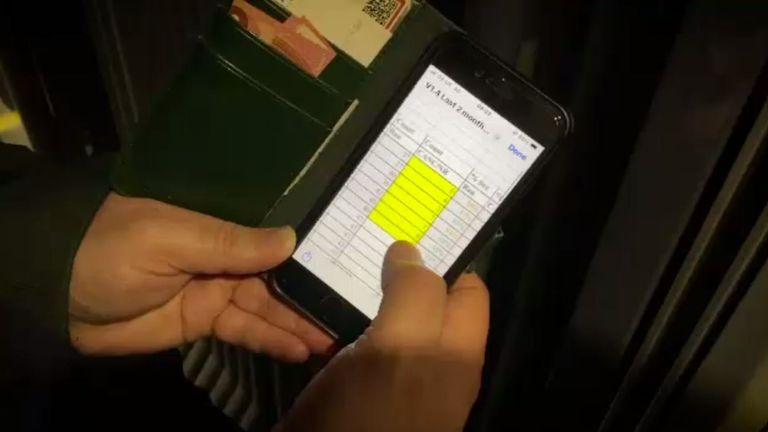
My train actually arrives at Euston on time. Many of its passengers don’t though as they were due to be on an earlier service that was cancelled.
And the board at Euston tells me my train back to Manchester has also been cancelled.
My final journey is on a service that performs pretty well for reliability, even if it is the slowest inter-city route in the country.
It takes 48 minutes to cover the 19 miles from Chester to Liverpool, the scenery of the leafy Wirral at least providing a welcome distraction.
Read more UK news
Man who kept dead flatmate in freezer jailed
Government won’t fully commit to ‘Hillsborough Law’
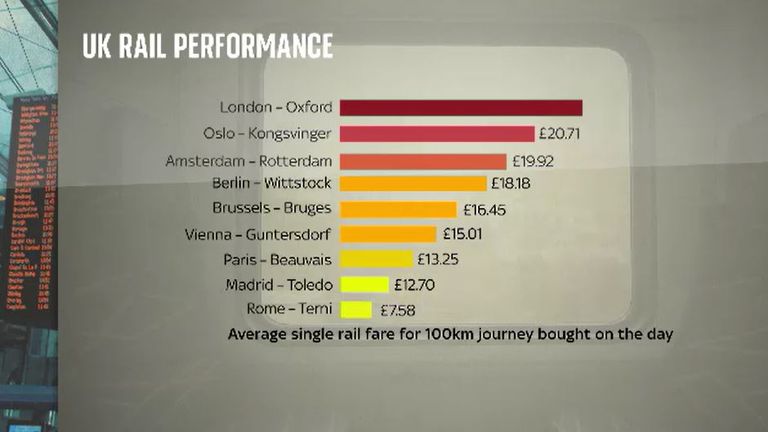
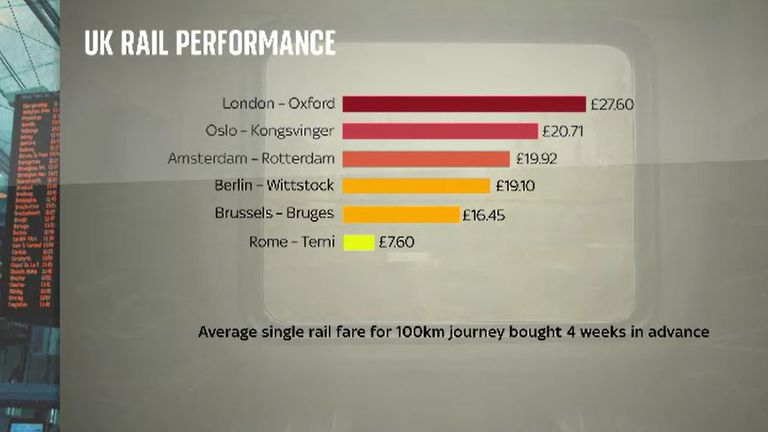
Most passengers are quite content with the service although a young mum who moved to live next to a railway station because she doesn’t drive expressed frustration the trains sometimes skip that station up make up list time.
My experience of these journeys across the country is that passengers want to be able to trust and believe in the rail system, they want it to work.
The Rail Delivery Group says it will continue to focus on making rail services reliable and punctual.
A spokesperson for the Department for Transport said: “We continue to work closely with operators to ensure they provide the best possible experience for those using our railways and have been clear that we will hold them to account if they let passengers down.”
Talking to those passengers, it is clear no-one expects train services to be perfect, they just want them to be better.